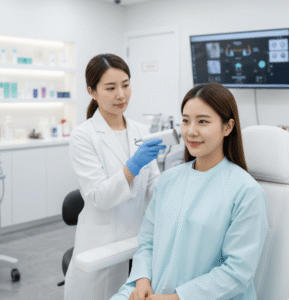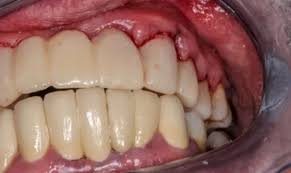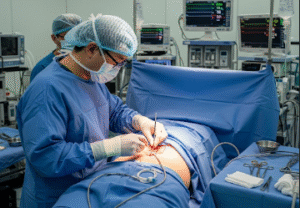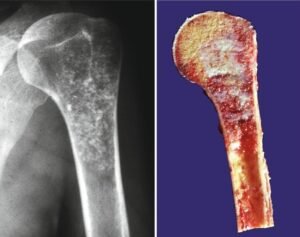Overview
Thyroid problems refer to a range of disorders affecting the thyroid gland, a small, butterfly-shaped organ located at the front of the neck that regulates metabolism, growth, and energy production through hormone secretion. Common thyroid issues include hypothyroidism, hyperthyroidism, goiter, thyroid nodules, and thyroid cancer. South Korea is renowned for advanced diagnostic and treatment approaches, including high-resolution imaging, blood testing, minimally invasive surgeries, and targeted therapies. Korean healthcare facilities emphasize early detection, accurate diagnosis, and personalized treatment plans to ensure optimal outcomes for patients with thyroid problems.
What are Thyroid Problems?
Thyroid problems occur when the gland produces too much or too little hormone, develops structural abnormalities, or becomes affected by autoimmune or neoplastic conditions. The main categories include:
- Hypothyroidism: Insufficient hormone production leading to slowed metabolism
- Hyperthyroidism: Excess hormone production causing accelerated metabolism
- Goiter: Enlargement of the thyroid gland due to iodine deficiency, autoimmune disease, or nodules
- Thyroid nodules: Solid or fluid-filled lumps that may be benign or malignant
- Thyroid cancer: Malignant growth in the thyroid tissue
Thyroid disorders can affect physical and mental health, influencing weight, energy, mood, heart function, and overall well-being. In Korea, endocrinologists use advanced diagnostic tools to detect even subtle thyroid dysfunctions early.
Symptoms
Symptoms of thyroid problems vary depending on the type and severity:
Hypothyroidism:
- Fatigue and weakness
- Weight gain despite normal diet
- Cold intolerance
- Dry skin and hair thinning
- Constipation and slowed digestion
- Depression or low mood
- Swelling in the face, hands, or feet
Hyperthyroidism:
- Unexplained weight loss
- Rapid or irregular heartbeat
- Tremors in hands and fingers
- Heat intolerance and excessive sweating
- Nervousness, anxiety, or irritability
- Frequent bowel movements
- Goiter or enlarged thyroid
Thyroid nodules or cancer:
- Lump in the neck
- Difficulty swallowing or breathing
- Hoarseness or voice changes
- Pain or tenderness in the neck
Early detection of these symptoms in South Korea allows timely intervention and improved prognosis.
Causes
The causes of thyroid problems vary depending on the specific disorder:
- Autoimmune disorders: Hashimoto’s thyroiditis causes hypothyroidism, while Graves’ disease causes hyperthyroidism
- Iodine imbalance: Deficiency or excess can disrupt hormone production and cause goiter
- Genetic predisposition: Family history of thyroid disorders increases susceptibility
- Radiation exposure: Past radiation therapy to the neck or head can trigger thyroid dysfunction
- Thyroid nodules and tumors: Benign or malignant growths can alter gland function
- Medications or health conditions: Certain drugs, pregnancy, or chronic illnesses affect thyroid function
Korean endocrinologists assess underlying causes through blood tests, imaging, and sometimes genetic analysis to guide appropriate treatment.
Risk Factors
Certain factors increase the risk of thyroid problems:
- Female gender, particularly in middle age
- Family history of thyroid disorders or autoimmune conditions
- Previous radiation exposure to the neck or head
- Iodine deficiency or excess intake
- Pregnancy or postpartum period
- Chronic illnesses or autoimmune diseases
- Smoking and certain medications
Recognizing these risk factors enables Korean healthcare providers to implement preventive measures and routine monitoring for at-risk populations.
Complications
Untreated or poorly managed thyroid problems can lead to significant complications:
- Cardiovascular issues: Arrhythmia, high blood pressure, or heart failure
- Metabolic problems: Weight fluctuations, diabetes risk, and cholesterol imbalance
- Neurological and psychological effects: Fatigue, depression, cognitive impairment, anxiety
- Goiter-related issues: Compression of airway or esophagus causing difficulty breathing or swallowing
- Reproductive issues: Irregular menstrual cycles, infertility, or pregnancy complications
- Thyroid cancer progression: If malignant nodules are not detected and treated early
Korean healthcare systems emphasize comprehensive care and follow-up to prevent these outcomes and maintain long-term health.
Prevention
Preventive strategies focus on maintaining thyroid health, early detection, and minimizing risk factors:
- Regular screening: Blood tests and neck examinations, especially for high-risk individuals
- Iodine management: Adequate dietary intake through iodized salt or foods
- Healthy lifestyle: Balanced diet, exercise, and stress management
- Avoiding unnecessary radiation exposure: Especially during childhood
- Monitoring medications: Awareness of drugs that may affect thyroid function
- Genetic counseling: For families with history of thyroid disorders
In South Korea, public health initiatives and hospital programs educate patients on thyroid health and the importance of routine checkups.
Treatment Options in Korea
Treatment of thyroid problems in South Korea is tailored to the specific condition, severity, and patient needs:
Diagnosis:
- Blood tests to measure TSH, T3, T4, and thyroid antibodies
- High-resolution ultrasound to detect nodules or structural changes
- Fine-needle aspiration biopsy for suspicious nodules
- Imaging studies, such as CT or MRI, for advanced cases
Medical Treatments:
- Hypothyroidism: Oral thyroid hormone replacement therapy
- Hyperthyroidism: Antithyroid medications, beta-blockers, or radioactive iodine therapy
- Thyroid nodules: Observation for benign nodules, surgical removal if necessary
- Thyroid cancer: Surgical removal, radioactive iodine, hormone suppression therapy, and targeted therapy for advanced cases
Supportive Care:
- Regular monitoring of thyroid function and medication adjustments
- Dietary and lifestyle guidance
- Psychological support for anxiety, depression, or stress related to thyroid disorders
Korean hospitals provide multidisciplinary care with endocrinologists, surgeons, radiologists, and nutritionists collaborating to optimize treatment and patient outcomes.













